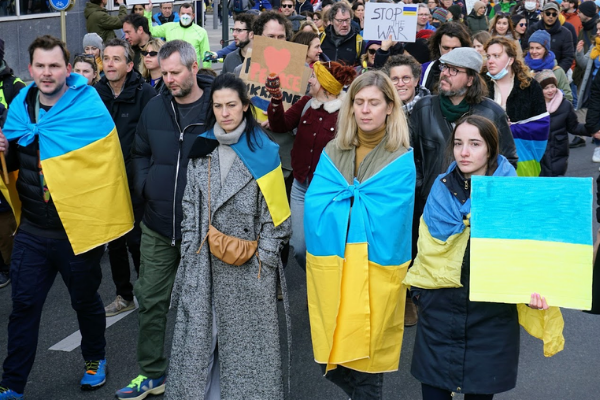The European Commission proposed to increase EU financing by €3.4 billion for Member States that are welcoming refugees fleeing the war in Ukraine.
As more than 3.7 million Ukrainians have been forced to flee their country – a number that is growing every hour – the EU is stepping up efforts to ensure the Member States and civil society have the necessary support to accommodate the refugees.
“Given the urgency and severity of the crisis triggered by Russia's invasion of Ukraine, the EU is looking for new ways to make liquidity available immediately to the Member States most affected,” Commissioner for Jobs and Social Rights Nicolas Schmit said. “We have no time to lose.”
This increase will speed up the countries’ access to funds to spend on infrastructure, housing, employment, education, social inclusion and health- and childcare.
The EU has already contributed over €1 billion in humanitarian and early recovery aid to Ukraine since the start of the conflict in 2014, while the 2014-2020 cohesion policy programmes will receive a €50.6 billion top-up, according to a Commission statement.
The 🇪🇺 EU is with the 🇺🇦 Ukrainian people.
Some 3.5 million people have now fled Ukraine following the Russian invasion. We are supporting EU countries to ensure their protection and full access to their rights. Check out our actions in our thread. ↓#StandWithUkraine pic.twitter.com/n7Dj78bBtQ — European Commission 🇪🇺 (@EU_Commission) March 23, 2022
Belgium struggles to bear the load
Refugees from Ukraine receive automatic EU asylum across the bloc, a measure that stems from a Belgian request to activate an emergency directive initiative.
Although Belgium has pledged solidarity to the beleaguered Ukraine it has struggled to process the influx of Ukrainian refugees. Earlier this month, State Secretary for Asylum and Migration Sammy Mahdi said emergency villages were needed to accommodate the refugees.
Related News
- EU launches new portal to support researchers from Ukraine
- Brussels aims to boost vaccination among Ukraine refugees
Several days later, a larger centre was opened to register Ukrainian refugees' presence in the country in Palace 8 at the Brussels Exhibition Centre in Heysel, which resulted in people being processed more quickly.
Belgian health care centres have also started offering psychosocial support to Ukrainian refugees and the Royal Family opened its doors to Ukrainian families.

